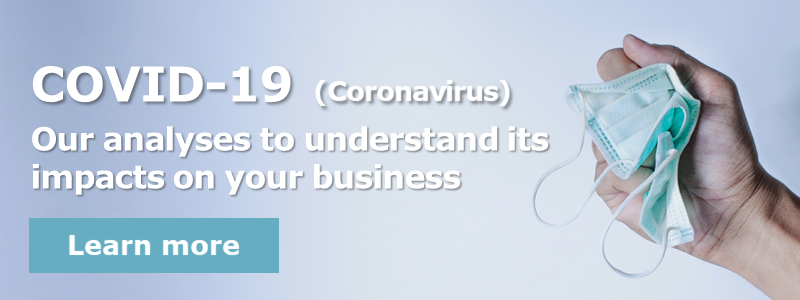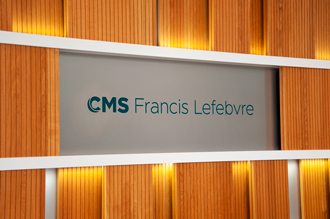On Wednesday, 24 June 2020, the Ministry of Labour officially published the new national deconfinement protocol for companies to ensure the health and safety of employees. It takes into account the improvement in the health situation and thus eases certain rules previously laid down.
This protocol, divided into six separate parts and three appendices, "replaces the previous one, but also the 90 business guides" that have been put on-line until now "which will no longer have a normative value". They will soon be replaced by a FAQ answering the concrete questions of companies (press release from the Ministry of Labour, click here). This new protocol substantially modifies that which was published on 3 May 2020 in anticipation of the deconfinement. Focus on key changes.
Conditions for implementing protective measures in the company in the context of a social dialogue
The Protocol recalls that the definition and implementation of preventive measures must be carried out within a concerted framework to ensure their effectiveness, feasibility and broadest possible acceptance by all stakeholders. In this respect, staff representatives and union representatives must be involved to enable these measures to be applied in the company taking into account its particular situation. Proper informing of all employees and consultation within each work unit is also essential.
The new protocol also provides for a Covid-19 contact person to be appointed in all companies, who may be the manager in small businesses. His role is to ensure that defined measures are implemented and that employees are kept informed. His identity and mandate are communicated to all staff.
It is also specified that employers must pay particular attention to:
- seconded, seasonal temporary and short-term contract workers to ensure that they have a good knowledge of the ways in which the virus spreads and of the means of protection;
- workers at serious risk of contracting Covid-19 for whom teleworking is a solution to be favoured at the request of the interested parties and, if necessary, after exchange between the attending physician and the occupational physician, in compliance with medical confidentiality, as well as workers sharing the home of a person at risk. For employees who cannot telework, face-to-face work should be accompanied by additional protective measures (e.g. the provision of a mask for medical use, special vigilance with regard to hand hygiene and the workstation layout). In any case, these employees may consult their attending physician or occupational physician to obtain a work interruption declaration (isolation certificate).
Employee protective measures
With regard to hygiene and social distancing measures, the new protocol specifies that "Teleworking is no longer the norm but remains the preferred solution in the context of a gradual return to face-to-face activities, including alternating work". According to the Minister of Labour, Muriel Pénicaud, maintaining teleworking for part of the week, for example, is desirable to avoid the grouping of people in offices and transport, but there is no question of the Government imposing it.
The objective must be to limit the risk of crowding and intermingling (flow of people) and concentration (density) of staff and customers in order to facilitate compliance with social distancing of at least one metre from any other person.
Indeed, the respect of a distance of at least one metre between people is becoming the norm; the 4 m2 gauge is now a simple tool that is still proposed as an indication.
The employer defines a flow management plan that integrates employees, customers, suppliers and service providers with the implementation of an incentive circulation plan aimed at making the traffic flow rather than slowing it down. A "gauge" defining the number of people who may be present simultaneously in the same space may be defined by the employer.
If it is not possible or if there is a risk of breaking the social distancing of at least one metre, employees must wear masks, particularly in the event of the presence of several employees in a vehicle or in a group freely made up of persons not wearing a mask.
Finally, among other recommendations, regular ventilation of work and public reception areas shall be organised if possible for 15 minutes every three hours. Failing that, an adequate new air supply must be ensured by the ventilation system.
Personal protective equipment (PPE)
The new protocol no longer provides for the possibility for the employer to decide to enforce the collective wearing of a mask by the "general public" within the company.
With regard to visors, it is specified that their use is not an alternative to the wearing of a mask. Nevertheless, they are an additional means of protecting the face and eyes in addition to the wearing of a mask and in regular close proximity with several people, when a separation device is not possible.
Screening tests
Although the protocol published on 3 May 2020 prohibited the organisation of screening campaigns by companies for their employees, the new version is limited to specifying that it is not the company’s role to organise virological screening campaigns. Furthermore, with regard to serological tests, the indications defined by the health authorities do not allow companies to consider such campaigns.
These campaigns may be carried out with employees upon decision of the health authorities.
Finally, the recommendations relating to the methods of care for a symptomatic person and their close contacts, the rules for cleaning and disinfecting surfaces and objects, as well as the implementation of a temperature control at the entrance of companies remain unchanged.
This relaxed deconfinement protocol is now the reference document for companies.
Report: impacts of Covid-19 (Coronavirus)
Our law firm offers you its legal assistance to address all the impacts of Covid-19 (Coronavirus) on your business. Read our dedicated report below.
For more information on our law firm:
Our law firm is a leading international business law firm. Its deep roots, unique positioning and highly recognised expertise enables it to deliver innovative, high value-added solutions in all areas of the law.












Social Media cookies collect information about you sharing information from our website via social media tools, or analytics to understand your browsing between social media tools or our Social Media campaigns and our own websites. We do this to optimise the mix of channels to provide you with our content. Details concerning the tools in use are in our privacy policy.